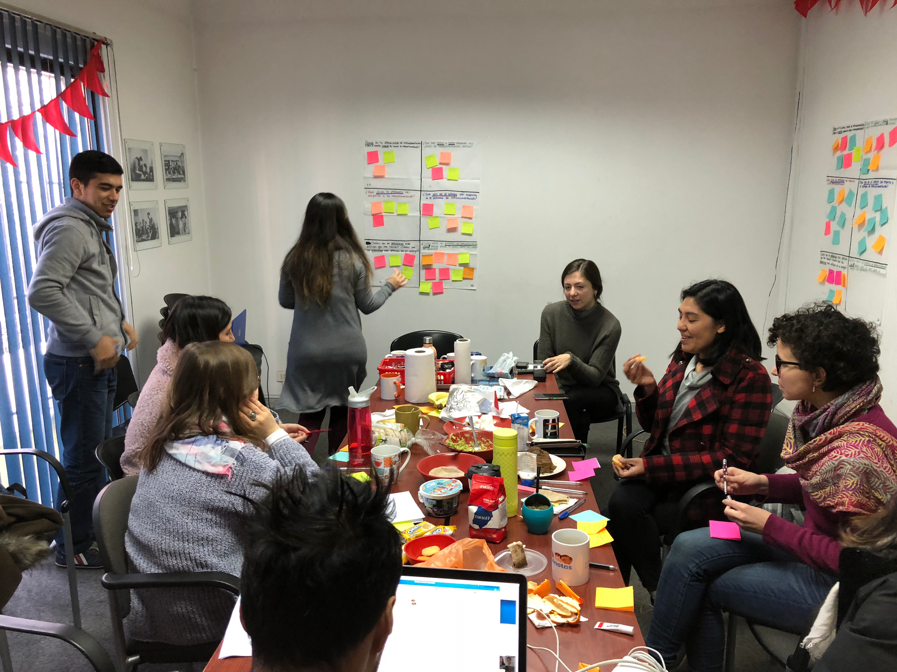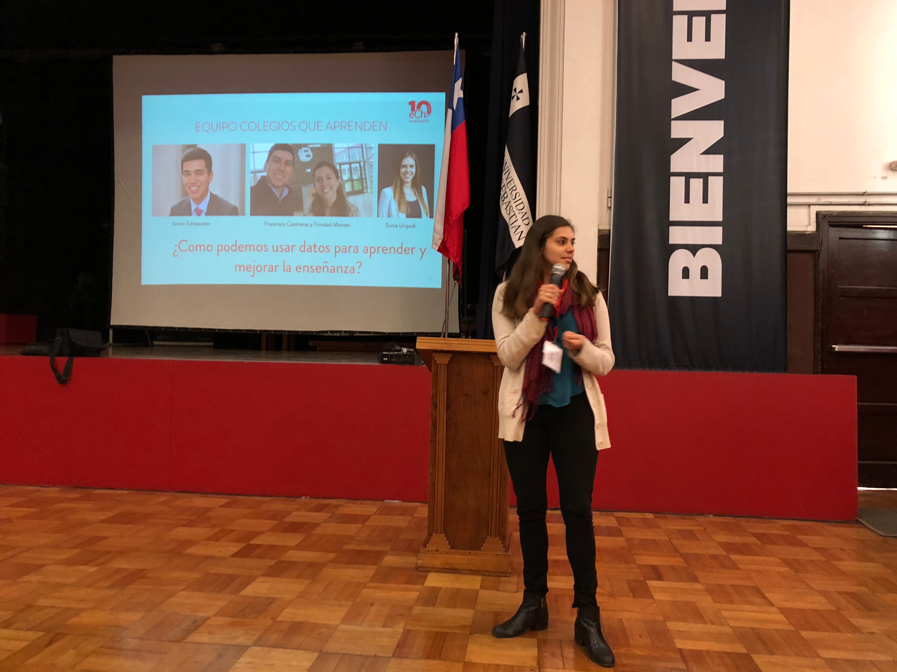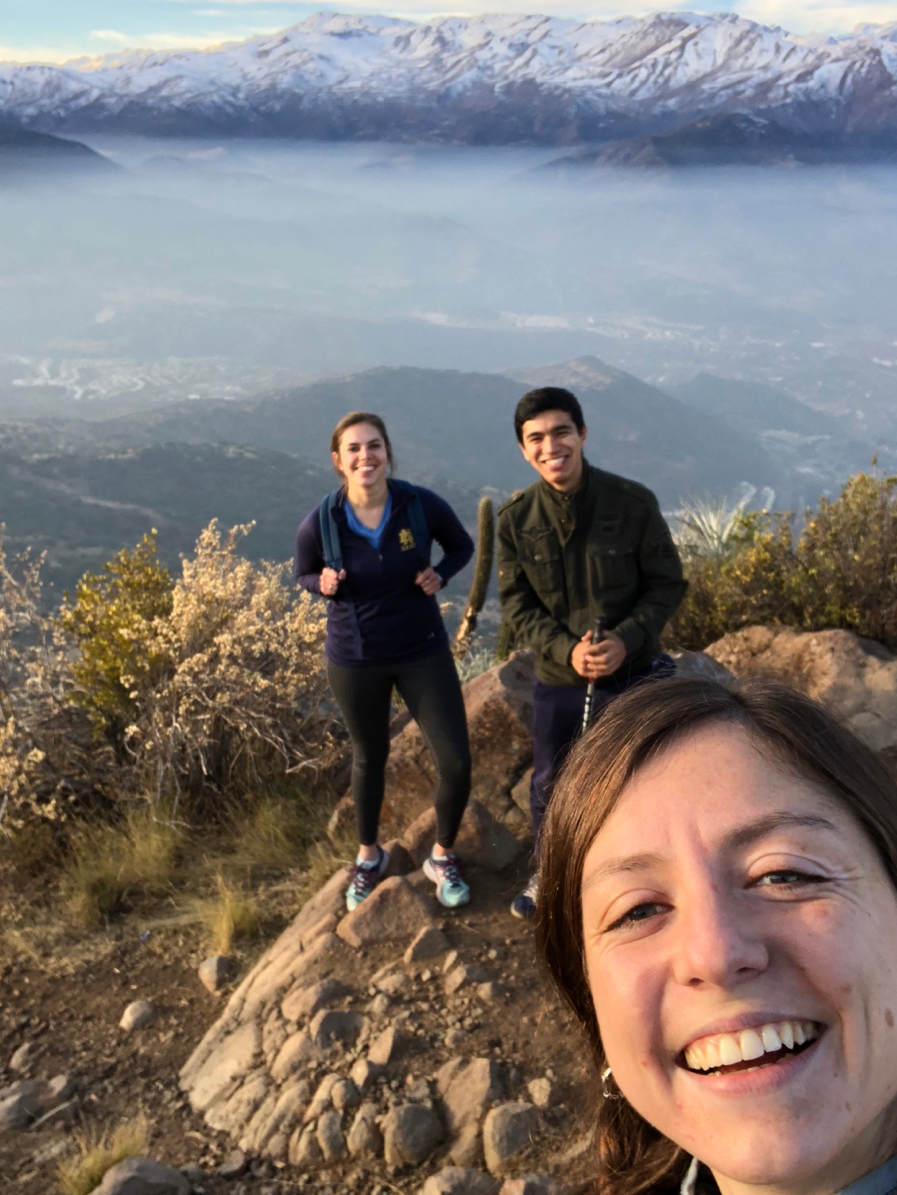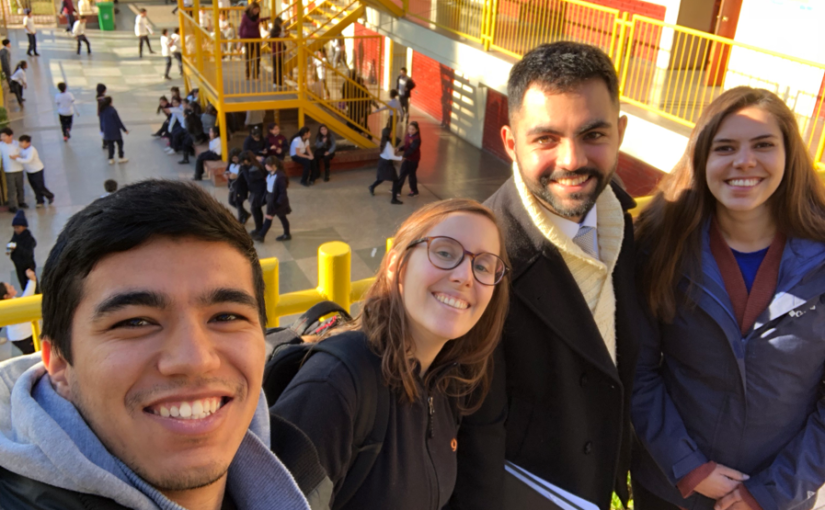by: Sonia Urquidi
Thirty-three interviews, three focus groups, and eleven classroom observations later, the Enseña Chile team’s eight weeks in the field has come to a close. I write this from my host family’s house as my host dad watches rugby in the living room, both of us bundled in our jackets, as the house is nearly the same temperature as the winter air outside. As I sit down to write, I realize that I’ve barely had a second to myself to reflect on this experience; I’ve been too busy working and exploring Chile with family or friends. Despite the exhaustion, I feel incredibly fortunate for this busy yet fulfilling experience I’ve had here. As I think about what to write, I feel I should address three major things: Our project, of course, some things I’ve learned about education, and the thing for which I am most grateful—the people.
OUR MASTER’S PROJECT
To provide some context, Enseña Chile is an organization modeled after Teach for America in the U.S., and is part of the Teach for All network. This organization selects talented university students (who have not studied pedagogy) to spend two years as teachers in vulnerable schools across Chile. Our work, in particular, relates to a relatively new project, “Colegios que Aprenden” (“Schools that Learn,” in English), in which Enseña Chile hopes to create a consultancy model that helps schools achieve continuous improvement based on concrete evidence.
Therefore, our fieldwork is centered on the following question: How might schools achieve continuous improvement, using data and evidence, to enhance student learning? This is a broad and daunting question. Where would we start?
With the help of our dedicated and kind Chilean team members, Trinidad and Francisco, we began by visiting schools and talking to relevant stakeholders to learn about current feedback systems in Chilean schools. Based on our conversations and observations, we gathered ideas about how to improve these systems. We visited schools in three major cities: Valparaíso, Concepción, and Santiago (our home base) in order to gain perspective about distinctive regions in the 2,653-mile-long country. The interview questions changed throughout the process as we uncovered major themes or discovered new questions, and the Spanish became a little less daunting as I gained practice. I was delighted by the enthusiasm and openness of the teachers and school administrators who carved out anywhere from fifteen minutes to two hours to talk with us.

THE URGENCY OF EDUCATION
As was the case for some of our classmates in the master’s program, our team’s research didn’t require us to confront overly sensitive or urgent topics. Our questions were along the lines of, “What is your relationship like with other teachers?” or “How do you know that your students have learned the class material?” While these questions didn’t seem pressing, I was reminded in each interview of the fact that every student’s future depends on the quality of his or her education. From this I began to comprehend that this work should, indeed, be approached with a sense of urgency. Many of the schools where Enseña Chile teachers work have a high percentage of students from vulnerable communities. For many of these kids, when home doesn’t offer a safe, loving, or stable environment, school offers solace. As science teacher, Sebastián told me, “My priority [is] to construct a safe place for them…to form a family.” For these kids, ensuring—as soon as possible—that school is a place of caring and love, and that their education can give them the power to transform their own lives, is urgent. It’s urgent in Chile and around the world. For those of you from the U.S., I ask you to think about the impact of gun violence in our schools, for example. Where do we expect our children to learn if they feel unsafe at home and at school?

FROM FOREIGNER TO FRIEND
As interesting and challenging as this research has been, what is most imprinted in my memory are the people I’ve met here in Chile. Just the other day, Enseña Chile celebrated its 10-year anniversary with a day-long celebration. Teachers, school administrators, and funders from all over Chile gathered to converse and attend workshops. As I glanced around the auditorium at the event, I realized how many people Ikrom and I have had the fortune of meeting—teachers with whom we spent hours chatting in Concepción, a school administrator from Viña del Mar who invited us into her home, several mentors who let us spend the night in their apartments, and all the Enseña Chile team from Santiago. In two months, I went from feeling a foreigner to a friend. And when Enseña Chile uses their slogan “somos red,” (“we are a network,” in English), I feel that I am a small part of that human network.


